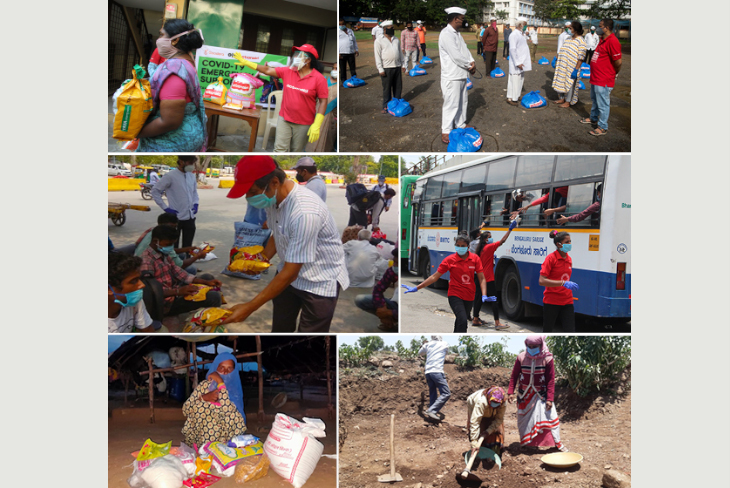We have been rigorously responding to the massive humanitarian crisis brought about by COVID-19 pandemic. Reaching out to disadvantaged communities across states who have been impacted disproportionately, our response to this unprecedented crisis has been multifaceted. In the immediate aftermath of the outbreak, together with
state governments and local administrations, we started sensitizing communities on the need to maintain hygiene and take precautionary steps to prevent the spread of the virus. We have also been bringing succour to the worst-hit families through relief materials. Working with volunteers, community-based organizations, movements, directly and with the help of local administration, as on July 31, 2020, we have been able to reach over 68,67,218 individuals with much-needed relief materials. They belong to vulnerable communities and groups across more than 235 districts in 23 states and one Union Territory, including people dependent on informal economy, Dalits, Muslims, particularly vulnerable tribal groups, de-notified tribes, nomadic tribes, people living with HIV and people with disabilities; with a focus on women and children among them. We have directly supported nearly 23,55,346 individuals with relief materials, such as dry ration, cooked food and sanitation supplies among other forms of relief, and facilitated access to government relief and schemes for another 46,16,799 individuals.
In the wake of livelihood losses amid the COVID-19-induced distress, as lakhs of jobless migrant workers started to return from the cities they were working in to their villages, our teams enabled their registration for their safe return home. Also, together with our volunteers and allies, we ran ‘
Relief in Transit’ hubs on highways and roads across ten states of the country to provide migrants on the road with water, food, footwear and first aid during their journey back home. Besides, in light of the huge reverse migration, our teams across states
have started facilitating work for the returnee migrant workers in their respective villages under the
Mahatma Gandhi National Rural Employment Guarantee Act (MGNREGA). We have also begun working with returnees to plan collective livelihoods and enterprises
.
We also brought out a series of documents titled ‘Isolate. Don’t Abandon’, capturing our recommendations pertaining to the most vulnerable groups, for consideration of the Union and State Governments and the district administrations. These notes aim to highlight the vulnerabilities of informal workers, vulnerable communities, women and children, and to secure immediate as well as long-term support for them. In addition, we are conducting a comprehensive assessment of the impact of the COVID-19 crisis on informal sector workers and their families. More than 10,000 workers across 18 states will be covered under this study titled ‘Workers in the Time of COVID-19’, and an update on their status will be taken every month for the next six months. The report emerging from a pilot study done under this initiative in Bihar can be found here.
More recently, our Executive Director, Sandeep Chachra, has been invited by the National Human Rights Commission (NHRC) as a member of the committee constituted by them on ‘Impact of COVID-19 pandemic on human rights and future response’. The committee would assess the impact of the pandemic on human rights of people, especially the marginalized and vulnerable sections of the society, and would suggest a response on the basis of which NHRC would issue a necessary advisory to the Union and State Governments. Identifying best practices in dealing with human rights situations from within as well as outside the country would also form part of the committee’s mandate.
To support our COVID-19 response, click
here.

